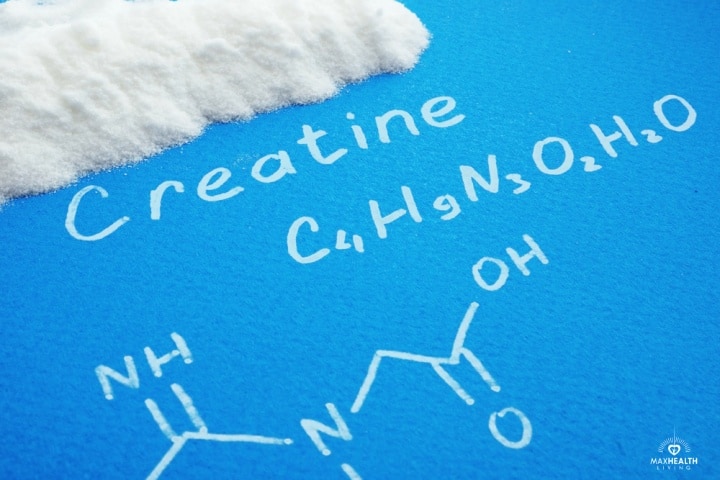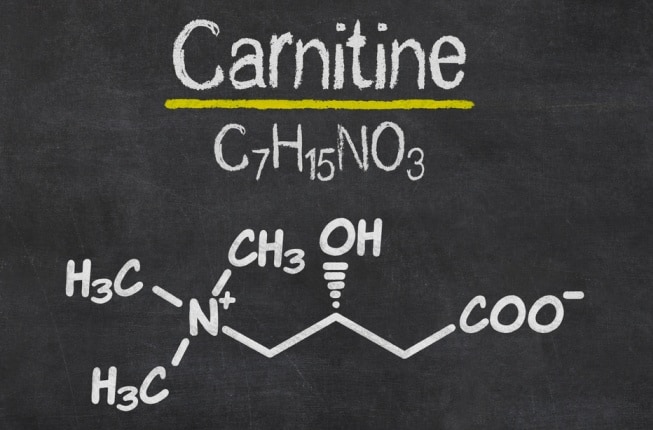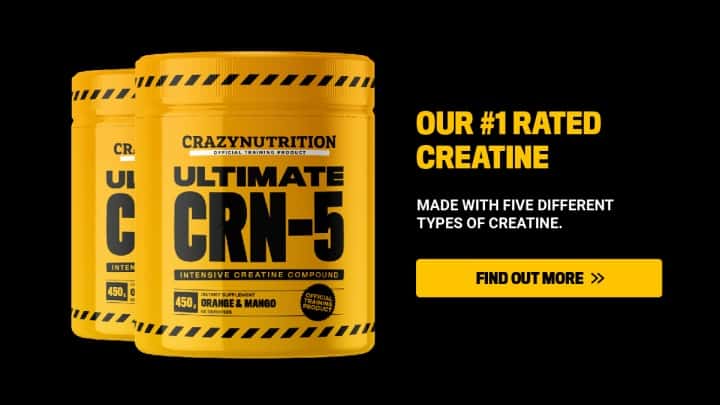Creatine vs Carnitine Differences: Can I mix together?
Max Health Living is a reader-supported site. Purchases made through links may earn a commission. Learn more.
In this article, you will find details regarding the effectiveness, differences, safety, side effects, and user reviews of both supplements.
In today’s world, manufacturers have come up with so many ergogenic supplements to support fitness goals. And because of this, you might as well have been going through the frustration of indecisiveness. Therefore, let me help you make an informed decision about your supplement purchase.
Creatine and carnitine are naturally occurring compounds in muscles that are synthesized from amino acids. Thus, both of them maintain lean muscle mass. However, they differ in their additional benefits and mechanism of action.
The former better supports body-building goals. In contrast, the latter is more suitable for obese individuals.
Keep reading to find out the details.
Is Creatine the Same as Carnitine? (Core Differences)
Creatine and carnitine are different organic compounds. Even so, both are derived from human and animal tissues.
Here are some of the distinguishing differences and features between creatine and carnitine:
Exogenous occurrence
Creatine occurs exogenously in foods like meat, seafood, and other animal products. On the other hand, carnitine occurs naturally in food animal products like red meat, fish, poultry, or dairy products in the whey fraction.
Endogenous Occurrence
Creatine is concentrated mostly in the muscles (95%), brain, and testes (5%). In comparison, carnitine is mostly concentrated in the skeletal and heart muscles.
Additionally, the liver, kidney, and pancreas synthesize creatine from amino acids like glycine, arginine, and methionine.
While the kidney and liver synthesize carnitine from just two amino acids, lysine, and methionine.
Energy Supply
Creatine supplies energy to the muscle by promoting ATP production in the muscle.
Creatine does this because it gets stored as phosphocreatine in skeletal muscles. Consequently, the phosphocreatine will transfer the phosphate group for ATP (energy) production whenever needed.
In comparison to this, carnitine promotes fat conversion into energy.
It does this by transporting the fatty acid to the mitochondria, where they get oxidized (burned) for energy production.
Ergogenic benefit
Creatine supplements are usually taken for weight gain to boost lean muscle gains. In comparison, carnitine is used as a fat burner for weight loss. Research has found that creatine is more beneficial in improving intense anaerobic exercise.
Conversely, the research found carnitine to be the more suitable supplement for aerobic exercise.
Also, creatine has a direct effect on muscle volumization. It does this by influencing gene expression, protein synthesis, etc.
Contrary to this, carnitine has an indirect effect on muscle gain. It basically prevents the loss of lean muscle during fat loss.
Since now you know the basic difference between both supplements, let’s find out how they compare on the basis of their safety and efficacy.
Creatine vs Carnitine – Which one is the more efficacious?
It often haunts our thoughts about whether the purchases we make are actually worth it.
This is why I’ve assembled this section to make you aware of which supplement is more efficacious.
Looking at Creatine:
Creatine effectively increases energy levels, muscle mass, and exercise performance.

Research has found that when you orally take creatine (20–30 g/day for ≥2 days), 25-30% of it gets stored as phosphocreatine which dictates energy production.
This energy resynthesis delays the onset of muscle fatigue and improves performance during high-intensity exercise.
Furthermore, the replenished creatine stores also improve exercise recovery. Due to improved recovery, you will also have higher stamina for doing repetitive bouts of intense contractions.
Additionally, creatine mediates gene expression that stimulates muscle protein synthesis (MPS) during the recovery period. This contributes to more gains and strength.
Looking at Carnitine:
Although it also improves energy levels and endurance workout performance, it is mostly seen as a fat burner.
Carnitine burns fat for energy production. And this process delays the onset of fatigue during exercise while simultaneously providing weight control benefits.

For instance, a study found that carnitine supplementation with carbohydrates prevented a 2 kg increase in body mass that occurred in the control group.
Moreover, the role of carnitine in promoting muscle growth may be linked to its effect on androgen (steroid hormone) receptors.
This effect was presented in a 21 days study performed in 2003, which found that l-carnitine l-tartrate enhances the utilization of free testosterone (steroid hormone) in the body to grow muscle fibers.
Additionally, a recent study supports previous findings suggesting that carnitine reduces muscle soreness.
In this study, participants undergoing resistance training were fed 2 grams of l-carnitine l-tartrate. And it found that carnitine prevents muscle soreness because it reduces muscle damage by optimizing the process of muscle tissue repair and remodeling.
Regardless of all the benefits, muscle carnitine levels don’t significantly increase when taken orally on their own.
However, combining it with carbohydrates improved its muscle uptake.
But then again, a high protein diet blunts intestinal absorption of carnitine.
Summary: Creatine seems to be more effective. The reason is that it does not depend on fat for energy production. It also seems to have less conditional and more robust mechanisms for promoting muscle gains.
Creatine vs Carnitine – Which is the safest?
Knowing the safety profile of the supplements may also help you decide if the supplement you have put your eyes on is worth the risk.
So, let us find out what health risks these supplements pose.
Creatine’s safety and side effects
Creatine FDA Stand
Creatine monohydrate has years of research and user experience to back its safety.
Moreover, research has shown that it is generally considered safe for consumption for up to 5 years.
Thus, in 2020, creatine monohydrate (Creapure) was generally recognized as safe (GRAS) by the United States Food and Drug Administration (FDA).
Creatine Side effects
Creatine may induce allergy symptoms like hives, face swelling, and difficulty breathing. It may also cause dehydration symptoms and electrolyte imbalance because the removal of creatine by-products increases the kidney’s workload.
Furthermore, a rapid heart rate and symptoms of gastrointestinal distress like diarrhea, nausea, and stomach pain have also been reported.
Creatine Kidney risk
There are only a few reports that indicate the risk of severe kidney damage caused due to creatine. Otherwise, it is found to be safe in healthy adults.
Nonetheless, you should avoid creatine supplements if you have chronic kidney disease or diabetes because they may worsen your kidney health.
Creatine Drug Interactions
Creatine may interact with certain medicines, so avoid taking it with antivirals, chemotherapy, injectable osteoporosis meds, pivalate-conjugated antibiotics, medicines for bowel disorders, herbal products, OTC meds, vitamins, medicine to prevent organ transplant rejection, nephrotoxic medicines, pain, and arthritis meds (e.g., aspirin).
Creatine Safety during pregnancy and breastfeeding
Certain studies have found that creatine monohydrate does not pose any safety risk or cause adverse effects in pregnancy.
Moreover, it also occurs naturally in breast milk. But its supplementation may cause a risk of increased creatinine levels in mother and baby.
Hence, specialized tolerability studies are required for developing a conclusive statement.
Creatine Safety in different age groups
But in both cases, take doctors’ recommendations before pursuing this supplementation, especially in case of use in infants and individuals above 60 years of age.
Other than that, multiple studies suggest that creatine supplementation is generally well tolerated in both adults (more than 19 yrs) and children (14-18 yrs).
Carnitine’s safety and Side effects
L-carnitine t FDA stand
There is still more research that needs to be done on L-carnitine to assess its safety.
Nonetheless, some long-term studies have concluded that carnitine supplementation in doses of 2g/day is safe to consume for 12 to 24 months.
Anyhow, the FDA does not affirm L-carnitine dietary supplement as GRAS. But it can still legally be used as a human dietary supplement because the FDA rules for regulating dietary supplements are different.
L-carnitine t Side effects
L-carnitine doses of 3 g/day may commonly cause nausea, vomiting, abdominal cramps, diarrhea, and a “fishy” body odor.
It may also cause rare side effects like muscle weakness and pruritic rash in uremic patients. In some cases, it triggered seizures in patients with seizure disorders.
Carnitine Heart risk
Carnitine may increase the risk of cardiovascular disease.
This is proven by a study published in Nature which stated that a substance called TMAO is produced when the intestinal bacteria metabolize carnitine.
Now, this TMAO enhances the cholesterol buildup in the arteries, which may increase the risk of cardiovascular disease.
Carnitine Kidney risk
According to a 2019 review, the effect of L-carnitine on kidneys has not been evaluated yet.
Nonetheless, a dosage of 6g/day is generally considered safe in healthy adults.
There are no reports of toxicity caused by overdosage as the kidney easily excretes it in urine.
Carnitine Drug Interactions
According to drugs.com, L-carnitine may interact with just two drugs: dicumarol and warfarin.
Carnitine Safety during pregnancy and breastfeeding
The FDA has characterized L-carnitine (CARNITOR) in pregnancy category B.
This means that more human research is required to support L carnitine safety in the fetus.
Even so, there are also some infant breast milk formulas that contain carnitine, and no side effects have been reported due to their consumption.
In any case, carnitine should only be used in pregnancy or nursing unless clearly needed.
Carnitine Safety in age groups
Different studies suggest that infants and children may take L-carnitine (CARNITOR) in divided doses ranging between 50 and 100 mg/kg/day, but the maximum dose for them is 3g/day.
Moreover, research also supports the safety, in fact, the benefit of carnitine supplementation in the older population.
Summary: Creatine seems to be safer than carnitine. This is because although it has more, it is characterized as GRAS by the FDA and is suitable for long-term use.
Creatine vs Carnitine – User Experience
I reviewed some user reviews to bring you recommendations from users who have used both supplements.
And here is what they are saying.
- A user, MannyZ, shared on the stronger247 forum that he has been taking creatine for the past six weeks and has observed positive body changes and higher power for workouts. In contrast, he wrote that his friend who has been taking L-carnitine for the last two weeks had not reported a significant difference. Although there could be multiple reasons why his friend didn’t see results, apparently, creatine seems to be more effective here.
- Another user on this platform, ‘SRorhrbac0808’, replied in a one-line that creatine works, but L-carnitine does not work.
- Cherry honeymoon started this Reddit thread asking which supplement among creatine, carnitine, and CLA is better.
To this, the Reddit user ‘AccomplishedCat762’ vouched for creatine, citing its benefits in improved energy production and brain health and her personal experience in which she gained a lot of muscle with it.
Contrary to this, the user ‘espresso_6’ didn’t see any effects with L-carnitine, maybe because she was not taking the supplement before the workout.
Summary: Creatine has been the user favorite on multiple platforms. The reason was that most users observed results with creatine, but carnitine seemed ineffective.
Best Creatine Supplement
From the above sections, it is understood that creatine is the more effective, safe, and user-accepted amino acid supplement compared to carnitine.
And since you now might end up looking for one of the best creatine supplements out there. So, to further help you out in your quest of finding the best supplement.
Here is my recommendation;
Crazy Nutrition’s CRN-5
Crazy Nutrition’s CRN-5 creatine formula hits you with not one but five different types of creatine.
Moreover, it intelligently combines electrolytes with the CRN-5. Hence, effectively enhancing recovery, energy production, muscle gain, and hydration.
So, what is the CRN-5 formula? It is a combination of different forms of creatine. These are namely creatine monohydrate, creatine hydrochloride, creatine ethyl ester, creatine pyruvate, and tri-creatine malate. A
Starting from the overall best Creatine monohydrate. Crazy nutrition adds it in the optimum concentration of 3 to 4 grams. This increases both the effectiveness and affordability of the product.
Next are some other forms like creatine-HCl, Tri-creatine malate, and creatine ethyl ester. These are added to the formulation because they may limit the risk of overdosage. This is because they have higher bioavailability, absorption, and uptake rates than the monohydrate form.
Now coming to the 5th form, creatine pyruvate. It enhances endurance, muscle force, power, and strength during high-intensity exercise. This may be attributed to its ability to boost energy production and aerobic metabolism.
Additionally, Crazy Nutritions CRN-5 contains minerals that reduce stress on the kidney by enabling better removal of creatine by-products and reducing the risk of dehydration.
Cost
- 30 servings (450 g) cost $34.99.
Pros
- It has an optimum dose of 6g of creatine.
- It boosts energy, recovery, hydration, and muscle mass.
- It has five different creatine types.
- It has well-researched mineral blends with high bioavailability.
- It is caffeine-free.
- It has a vegan formula.
- It has a 60-day money-back guarantee.
- It is cost-effective.
Cons
- It has to be taken 30 minutes before exercise.
- It has artificial sugars.
- It has artificial flavors and colors.
Also read:
FAQs – Everything else about creatine and carnitine
Can we take L-Carnitine and creatine together?
Yes, you can take both creatine and Carnitine supplements together to enhance your performance. In fact, research on formulations that combine both of them reflects their effectiveness in improving muscle mass and strength. Moreover, users on Quora have also assured from their personal experience that it is safe and effective to use them together.
Does L-Carnitine increase creatinine?
The L carnitine effect on athletes’ kidneys has not been evaluated yet. However, a recent meta-analysis revealed that carnitine reduced the blood creatinine levels in hepatic encephalopathy patients.
On the other hand, it elevated creatinine levels in diabetes-induced kidney damage patients.
When to take l-carnitine?
It is best to take carnitine after the workout because, at this time, carnitine will help to replenish your energy levels.
Is carnitine good for lifting?
Yes, because carnitine helps to enhance performance stamina and energy during weight training exercises. Moreover, it promotes the recovery of damaged muscle after heavy lifts.
Conclusion
Creatine would help you more to put on weight and muscle; in comparison, you can use carnitine to lose weight while retaining lean muscle.
Keeping this in mind – creatine combines best with mass gainer and carnitine with meal replacements or protein powders.
Now, these supplements can compare on the basis that both of them optimize energy levels.
But here again, creatine regenerates ATP production in the muscles. In contrast, carnitine burns fat for energy. With respect to safety, creatine poses a kidney disease risk (in individuals who already have weak renal functioning), while carnitine may damage the heart.
I hope this article makes it easy for you to choose between creatine and carnitine.
Important Disclaimer: The information contained on MAX HEALTH LIVING is intended for informational and educational purposes only. Any statements made on this website have not been evaluated by the FDA and any information or products discussed are not intended to diagnose, cure, treat, or prevent any disease or illness. Please consult a healthcare practitioner before making changes to your diet or taking supplements that may interfere with medications.
Who We Are

We are a team of fitness, health, and supplement experts, and content creators. Over the past 4 years, we have spent over 123,000 hours researching food supplements, meal shakes, weight loss, and healthy living. Our aim is to educate people about their effects, benefits, and how to achieve a maximum healthy lifestyle. Read more.




